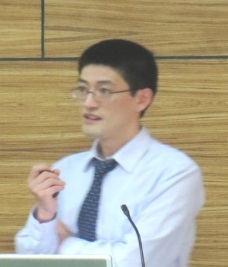
Chenyu Du
University of Huddersfield
Title: The development of a wheat straw based biorefinery for bioethanol fermentation
Biography
Biography: Chenyu Du
Abstract
The development of the 2nd generation of bioethanol production process from lignocellulosic raw materials has attracted increasing attention worldwide. Wheat straw is the most abundant lignocellulosic biomass in the UK and approximately 1.32 million tons wheat straw is available in the UK for the production of bioethanol. However wheat straw need to be pre-treated and hydrolyzed into simple sugars before it could be used for bioethanol fermentations. In this study, we report a biological pre-treatment strategy to convert wheat straw into a generic fermentation feedstock and then to convert the wheat straw hydrolysate into bioethanol via yeast fermentation.In this biorefining strategy, Aspergillus niger was firstly cultured on the wheat straw for the cellulosic enzyme production and then the cellulase-rich fungal extract was used to hydrolyse the fermented wheat straw. In a solid state fungal fermentation using autoclaved wheat straw, an cellulase activity of 9.5 FPU/g was achieved. When 0.5% yeast extract and a mineral solution were added, the enzyme activity increased to 24.0 FPU/g after 5 days of cultivation. When an alkali soaking modified wheat straw (1% NaOH at room temperature for overnight) was used, the cellulase activity reached 23.3 FPU/g just after 1 day of culture.
The hydrolysis of the fermented wheat straw using the fungal culture filtrate led to 4.34 g/L glucose in the hydrolysate at a solid loading rate of 5%. Increase in solid loading rate resulted in a higher glucose concentration of over 10 g/L in the wheat straw hydrolysate. The wheat straw hydrolysate has then been utilized in bioethanol fermentation using saccharomyces cerevisiae strains, no substrate inhibitory affect was observed.
